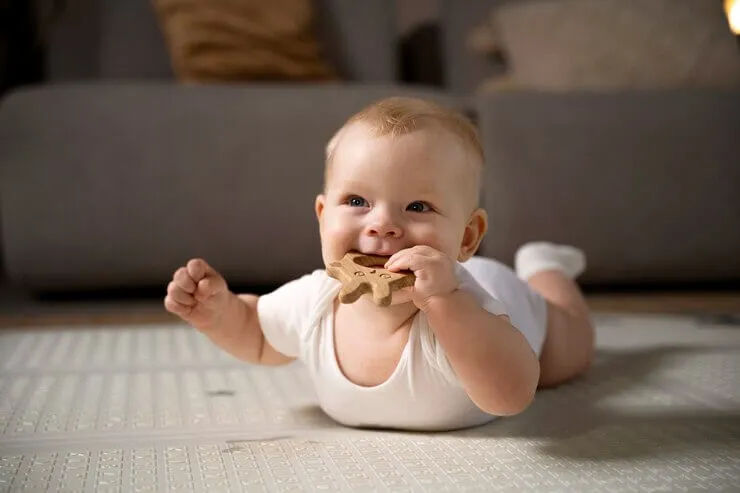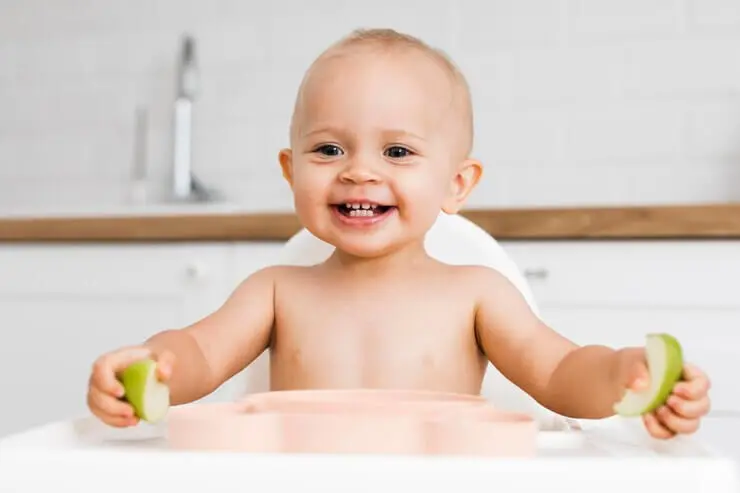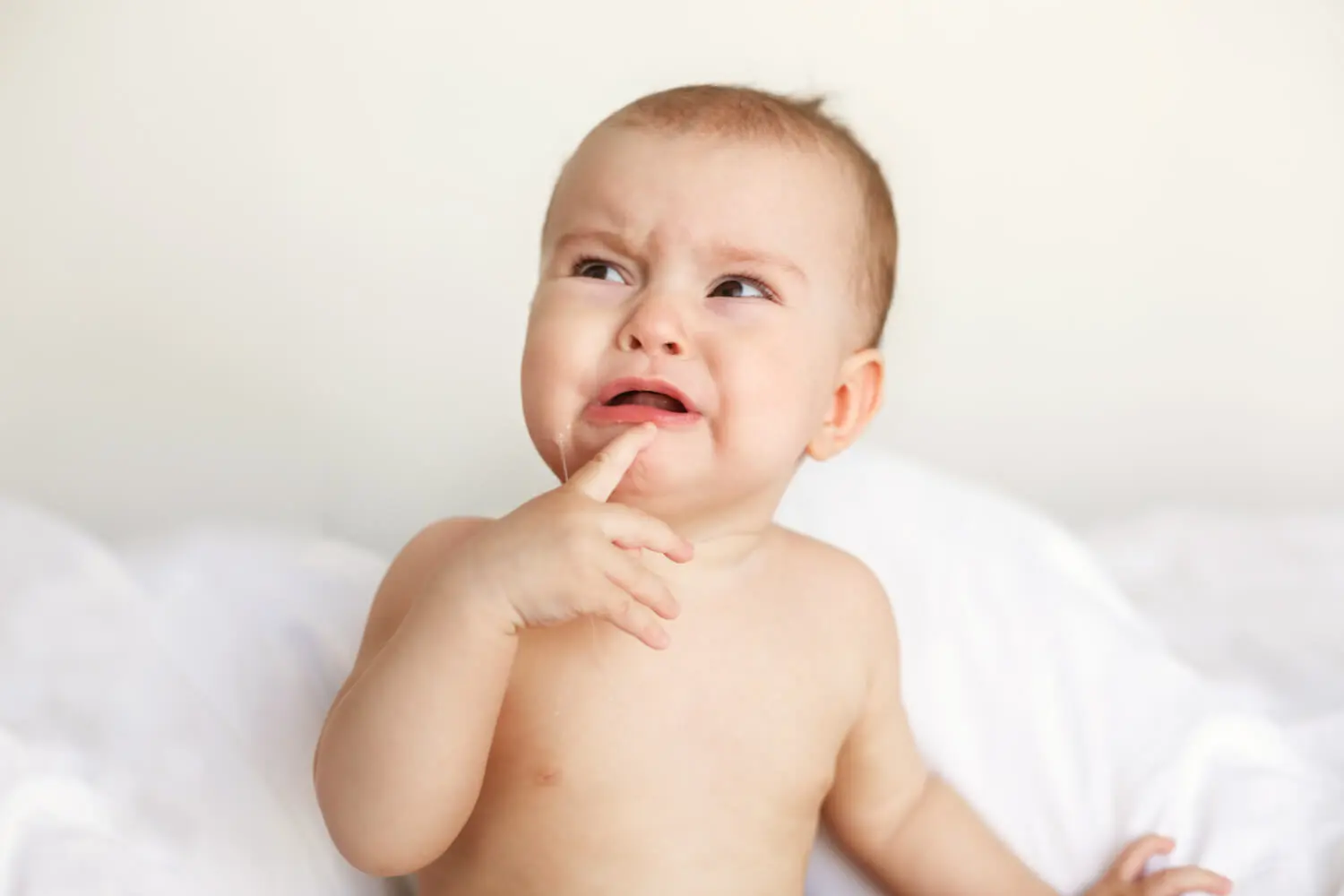The first time I heard my baby grinding their teeth, I was equal parts confused and concerned. That unmistakable sound—like nails on a chalkboard—sent me into a spiral of questions. Was this normal? Could it harm their tiny teeth? As it turns out, baby grinding teeth, also known as bruxism, is a common but often misunderstood behavior.
While it can be alarming for parents, understanding the causes and knowing how to address it can make all the difference. In this article, I’ll walk you through everything you need to know about baby grinding teeth, from the potential causes to when you should seek professional help. Let’s turn those worries into actionable solutions..
Table of Contents
What is Baby Teeth Grinding (Bruxism)?
Definition of Bruxism
Baby grinding teeth, also known as bruxism, is the act of clenching or grinding teeth, often without being aware of it. It can happen during the day or at night while your baby is sleeping. Nighttime bruxism, in particular, is common and usually occurs during light sleep stages. Although it can sound alarming, it’s not uncommon in young children, especially those under the age of three.
When Does It Usually Start?
From my experience, baby grinding teeth typically start around six months old when their first teeth begin to emerge. It can also occur during other teething stages as molars and additional teeth make their appearance. For some children, it’s a temporary phase tied to developmental milestones.
How to Identify Teeth Grinding?
If you’re unsure whether your baby is grinding their teeth, here are some signs to look for:
- Audible Grinding Sounds: The most obvious indicator is the sound of teeth rubbing together.
- Jaw Movements: You might notice your baby’s jaw moving rhythmically, especially during sleep.
- Tooth Wear: During dental check-ups, your pediatric dentist may point out signs of enamel wear or flattening of teeth.

Causes of Baby Grinding Teeth
Teething and Discomfort
One of the most common reasons for baby grinding teeth is teething. As those tiny teeth push through the gums, babies may experience discomfort or even pain. Grinding their teeth can provide some relief, almost like a self-soothing mechanism. I’ve noticed that when my baby is teething, she tends to grind more often, especially during naps and bedtime.
Misalignment of Teeth
Sometimes, a baby’s teeth don’t align perfectly as they’re coming in. This misalignment can lead to grinding as they try to make sense of how their teeth fit together. While this isn’t usually something to worry about, it’s worth keeping an eye on as their teeth and jaws develop.
Exploring New Sensations
Babies are naturally curious, and grinding teeth can simply be their way of exploring a new sensation. I remember the first time my baby realized she could make that sound—she did it repeatedly, almost like it was a new game.
Stress or Anxiety
Even babies can feel stress or anxiety, which might lead to grinding teeth. Changes in routine, a new environment, or even separation anxiety can trigger this behavior. I’ve found that comforting routines and extra cuddles can make a big difference during these transitions.
Underlying Health Issues
Although rare, underlying health issues like ear infections, allergies, or sleep disorders such as sleep apnea could contribute to teeth grinding. If you suspect an underlying issue, it’s always a good idea to consult with your pediatrician.
Potential Concerns with Baby Teeth Grinding
Short-Term Effects
In most cases, baby grinding teeth doesn’t cause any immediate harm. However, it can sometimes lead to:
- Irritated gums or jaw discomfort.
- Restless sleep for your baby (and possibly for you!).
I’ve noticed that if my baby has a particularly active night of grinding, she might wake up more frequently or seem fussier than usual the next day.
Long-Term Risks
Prolonged or severe grinding can lead to:
- Wear and tear on baby teeth, which could cause sensitivity or even chipping.
- Potential issues with jaw alignment if grinding persists into childhood.
Most babies outgrow this habit, but it’s important to monitor for any signs of damage or discomfort.

How to Help Your Baby Stop Grinding Their Teeth
Provide Teething Relief
Teething Toys and Rings
One of the easiest ways to help is by providing teething toys or rings. I always look for BPA-free options that are safe for babies to chew on. Chilling the teething ring in the fridge can add an extra layer of soothing relief for sore gums.
Gentle Gum Massage
Massaging your baby’s gums with a clean finger or a soft, damp cloth can work wonders. I’ve found that my baby relaxes almost instantly when I do this, especially during teething flare-ups.
Encourage Relaxation Before Bed
Calming Bedtime Routine
Creating a soothing bedtime routine can help reduce nighttime grinding. I usually include a warm bath, a calming lullaby, and some quiet cuddles before putting my baby to bed. These activities help her wind down and feel secure.
Monitor Diet and Sleep
Believe it or not, what your baby eats and how well they sleep can impact teeth grinding. I avoid giving sugary snacks close to bedtime and try to maintain a consistent sleep schedule to promote better rest.
Consult a Pediatrician or Dentist
If grinding persists or seems severe, consulting a professional is crucial. I’ve learned that pediatric dentists can check for any signs of tooth damage or alignment issues. In some cases, they might recommend simple interventions or monitoring.
FAQ: Baby Grinding Teeth
Why does my baby grind their teeth?
Babies grind their teeth for several reasons, including teething discomfort, exploring new sensations, or even as a reaction to stress. It’s often a normal part of development.
Is teeth grinding harmful for babies?
In most cases, it’s not harmful. However, if grinding persists or leads to visible tooth damage, it’s important to consult a professional.
When should I consult a professional?
If you notice persistent grinding, visible tooth wear, or signs of discomfort, reach out to your pediatrician or dentist for guidance.
Can teething toys help reduce grinding?
Yes, teething toys can be very effective in soothing gums and reducing grinding behavior. I always keep a variety of textures and shapes on hand for my baby.
Will my baby outgrow teeth grinding?
Most babies outgrow teeth grinding as their teeth and jaws develop. If it continues into childhood, further evaluation might be needed.
Conclusion
Hearing my baby grind her teeth was unsettling at first, but understanding the causes and knowing how to help has brought me peace of mind. For most parents, this phase is just another part of the journey through early childhood. By providing teething relief, maintaining a calming routine, and consulting professionals when needed, you can support your baby through this stage with confidence. If you’re ever in doubt, don’t hesitate to reach out for guidance—your baby’s comfort and well-being are worth it.

